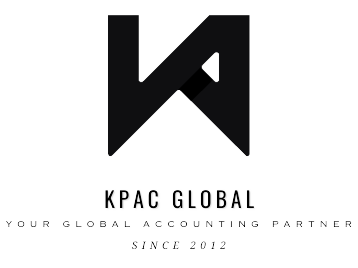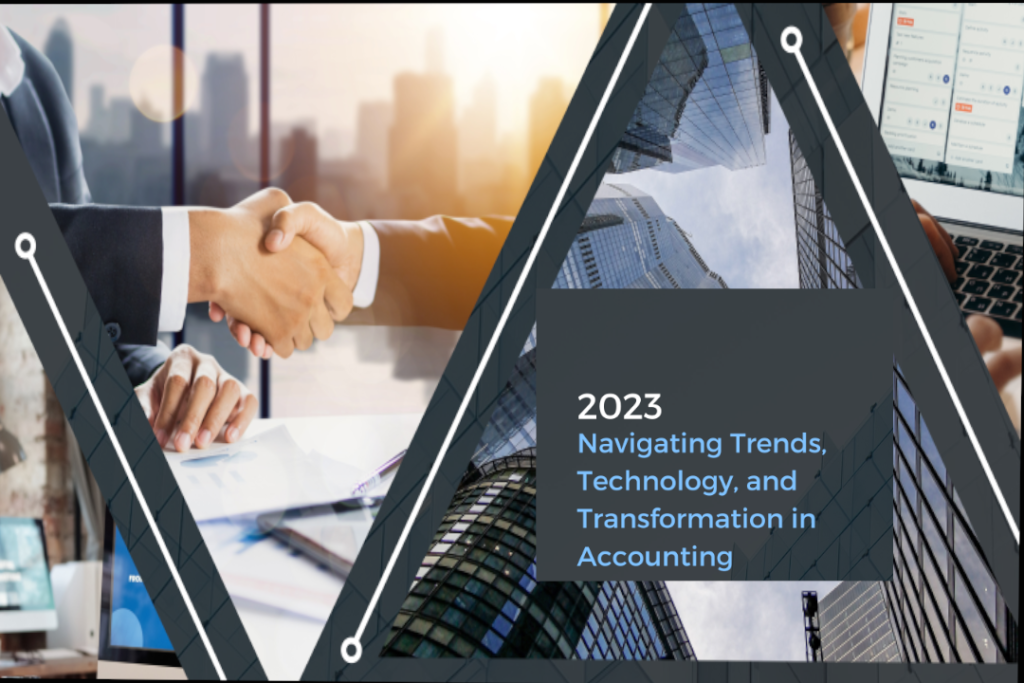The accounting profession has always been a dynamic field, constantly evolving to adapt to changes in
technology, regulations, and business practices. In recent years, several trends have emerged that are
reshaping the industry. These trends are not only changing the way accountants work but also the services they offer and the skills they need to stay competitive in a rapidly evolving landscape
Automation and Artificial Intelligence (AI):
One of the most significant trends in the accounting profession is the increasing use of automation and AI.With the help of machine learning and AI algorithms, routine and time-consuming tasks, such as data entry and reconciliations, can be automated. This allows accountants to focus on more strategic activities like data analysis and providing valuable insights to clients.
Cloud Accounting:
The move to cloud-based accounting software has gained significant traction in recent years. Cloud
accounting offers benefits such as real-time access to financial data, increased collaboration between clients and accountants, and enhanced security. It also allows for seamless integration with various other business tools, streamlining financial management processes.
Data Analytics:
Data analytics is becoming an integral part of the accounting profession. Accountants are using advanced analytics tools to extract meaningful insights from financial data. This not only helps in identifying trends and patterns but also aids in making more informed financial decisions. Clients now expect accountants to provide proactive advice based on data-driven insights.
Cybersecurity and Data Privacy:
With the increasing reliance on digital tools and data storage, the accounting profession is facing greater
cybersecurity challenges. Accountants must be vigilant about protecting sensitive financial information and complying with data privacy regulations like GDPR and CCPA. Staying up-to-date with cybersecurity best practices is essential to maintain trust with clients.
Sustainability Reporting:
There is a growing emphasis on sustainability in the business world. Accountants are increasingly involved in sustainability reporting, helping organizations measure and report their environmental and social impacts. This trend aligns with the growing focus on environmental, social, and governance (ESG) criteria for investment decisions.
Remote Work and Flexibility:
The COVID-19 pandemic accelerated the adoption of remote work in the accounting profession. Many
accounting firms and professionals have embraced remote work, providing flexibility for employees and
reducing overhead costs. This trend is likely to continue, with a hybrid work model becoming more
common.
Regulatory Changes and Compliance:
Regulatory changes continue to impact the accounting profession. The implementation of new accounting standards, such as the updated revenue recognition (ASC 606) and lease accounting (ASC 842) standards, has required accountants to adapt their practices. Staying informed about regulatory changes and ensuring compliance is crucial.
Outsourcing and Offshoring:
Many accounting firms are outsourcing or offshoring routine accounting tasks to reduce costs and increase efficiency. This trend allows accountants to focus on higher-value services and spend more time on client relationships and advisory work.
Client-Centric Services:
The accounting profession is shifting from a purely transactional approach to a more client-centric one.
Accountants are providing personalized services, including financial planning, tax optimization, and
strategic business advice. Building strong client relationships and understanding their specific needs are
paramount.
Continual Learning and Professional Development:
To keep up with the rapidly changing accounting landscape, accountants need to invest in ongoing
professional development. This includes staying updated on new regulations, technologies, and industry
best practices.
In conclusion, the accounting profession is undergoing a transformation driven by automation, technology, regulatory changes, and evolving client expectations. Accountants who embrace these trends, adapt to new tools and practices, and focus on providing value-added services will thrive in the modern accounting world.Staying informed and continually improving skills are essential for success in this dynamic profession. As the business world continues to evolve, accountants will play a critical role in guiding organizations toward financial success and sustainability




